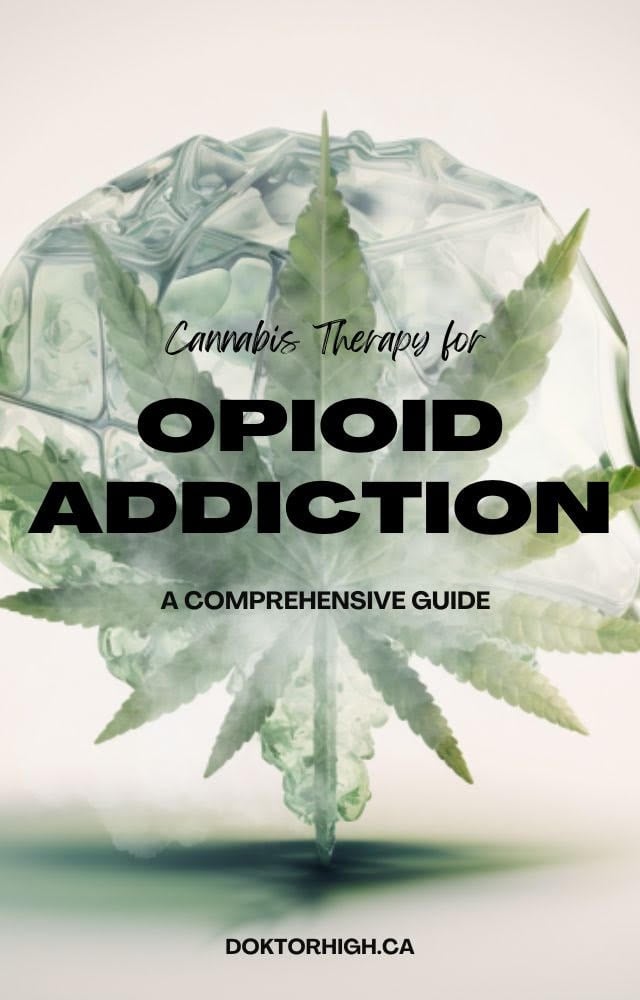

The Potential Benefits of Medical Cannabis Therapy for Individuals Suffering from Opioid Addiction and Its Potential for Recovery
Opioid addiction has become a global health crisis, with millions of lives affected by its devastating consequences.
Conventional treatment methods such as medication-assisted therapy and counseling have been effective, but the search for additional strategies to combat opioid addiction continues. In recent years, medical cannabis therapy has emerged as a potential adjunctive treatment for individuals battling opioid addiction. This article explores the potential benefits of medical cannabis therapy in aiding recovery from opioid addiction and discusses the scientific evidence supporting its use.
Medical Cannabis and Opioid Addiction: An Overview
1.1 The Opioid Epidemic
The opioid epidemic has caused a significant rise in overdose-related deaths and has overwhelmed healthcare systems worldwide. Opioids, whether prescribed or illicitly obtained, can cause physical and psychological dependence, leading to addiction. Traditional treatments for opioid addiction include opioid replacement therapy and counseling. However, these approaches may not be effective for everyone and may have limitations.
1.2 Medical Cannabis Therapy
Medical cannabis, derived from the Cannabis sativa plant, contains over a hundred active compounds called cannabinoids. The two most well-known cannabinoids are delta-9-tetrahydrocannabinol (THC) and cannabidiol (CBD). THC is primarily responsible for the psychoactive effects associated with cannabis, while CBD is non-intoxicating and has potential therapeutic properties.
The Role of Medical Cannabis in Opioid Addiction Recovery
2.1 Opioid Withdrawal and Craving Reduction
Research suggests that medical cannabis may help reduce withdrawal symptoms and cravings associated with opioid addiction. A study published in the Journal of Psychoactive Drugs found that individuals using medical cannabis experienced a 47% reduction in daily opioid use compared to those not using cannabis. Additionally, a review published in Substance Abuse: Research and Treatment reported that CBD may have potential in reducing drug cravings and anxiety-related symptoms.
2.2 Opioid-Sparing Effects
One of the potential benefits of medical cannabis therapy is its opioid-sparing effect. By using medical cannabis as an adjunctive treatment, patients may require lower doses of opioids for pain management. This approach could reduce the risk of developing opioid dependence and improve overall treatment outcomes.
Mechanisms of Action: How Medical Cannabis Works in Opioid Addiction
3.1 Interactions with the Endocannabinoid System
The endocannabinoid system (ECS) plays a crucial role in regulating various physiological processes, including pain perception, mood, and reward pathways. Medical cannabis interacts with the ECS by binding to cannabinoid receptors, modulating neurotransmitter release, and influencing the reward circuitry involved in addiction. These interactions may contribute to the potential therapeutic effects of medical cannabis in opioid addiction recovery.
3.2 Mitigating Opioid-Induced Neuroplasticity
Prolonged opioid use can lead to neuroplastic changes in the brain, making it more challenging to recover from addiction. Preclinical studies suggest that cannabinoids, particularly CBD, may help mitigate opioid-induced neuroplasticity by modulating neurotransmitter systems involved in addiction. However, further research is needed to fully understand these mechanisms and their clinical implications.
Safety and Potential Concerns
4.1 Safety Profile
Medical cannabis has a relatively good safety profile compared to opioids, which carry a high risk of overdose and respiratory depression. While cannabis use may have adverse effects, such as cognitive impairment and potential psychiatric effects, serious adverse events are rare. However, it is essential to consider individual patient factors and monitor for potential drug interactions.
4.2 Legal and Regulatory Considerations
The legal status of medical cannabis varies globally, with some countries allowing its use for specific medical conditions. It is crucial for healthcare providers to adhere to local laws and regulations regarding the use of medical cannabis in opioid addiction treatment. Additionally, healthcare professionals should consider the potential implications on patient confidentiality and the need for proper documentation and informed consent.
The Need for Further Research
While there is promising evidence suggesting the potential benefits of medical cannabis therapy in opioid addiction recovery, it is essential to acknowledge the need for further research. Most of the available studies are observational or preclinical, and larger randomized controlled trials are necessary to establish the efficacy, safety, optimal dosing, and long-term outcomes of medical cannabis in this context.
Conclusion
The potential benefits of medical cannabis therapy in aiding recovery from opioid addiction are becoming increasingly recognized. Medical cannabis may help reduce withdrawal symptoms, cravings, and the need for high-dose opioids, making it a potentially valuable adjunctive treatment option. However, it is crucial to consider the legal and regulatory aspects, as well as individual patient factors and potential risks. As research in this field continues to evolve, a comprehensive understanding of the therapeutic potential of medical cannabis in opioid addiction recovery can be gained, leading to improved treatment approaches and better outcomes for individuals affected by this devastating condition.
References:
Lucas P, Walsh Z. Medical cannabis access, use, and substitution for prescription opioids and other substances: A survey of authorized medical cannabis patients. Int J Drug Policy. 2017;42:30-35.
Hurd YL, Yoon M, Manini AF, et al. Early phase in the development of cannabidiol as a treatment for addiction: Opioid relapse takes initial center stage. Neurotherapeutics. 2015;12(4):807-815.
National Academies of Sciences, Engineering, and Medicine. The health effects of cannabis and cannabinoids: The current state of evidence and recommendations for research. National Academies Press; 2017.
Bonn-Miller MO, Loflin MJE, Thomas BF, et al. Labeling accuracy of cannabidiol extracts sold online. JAMA. 2017;318(17):1708-1709.
